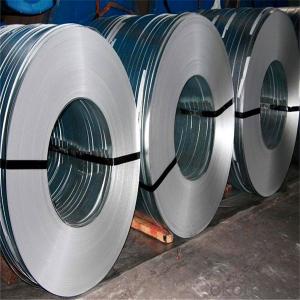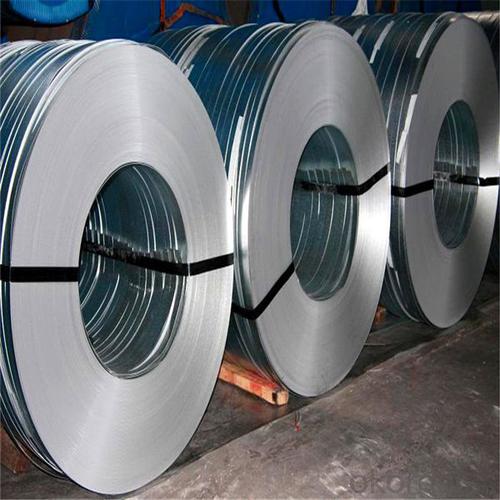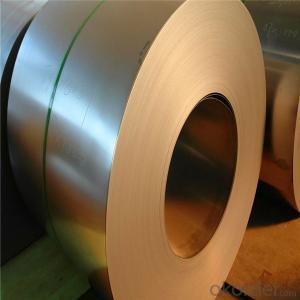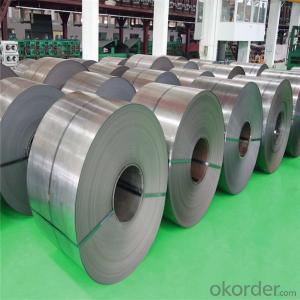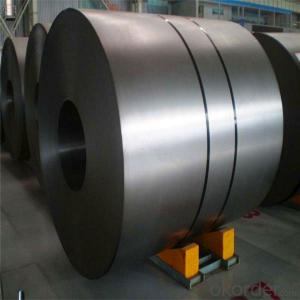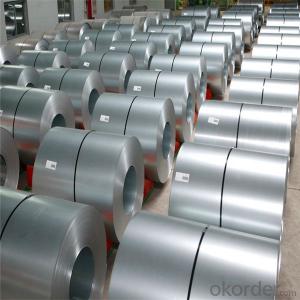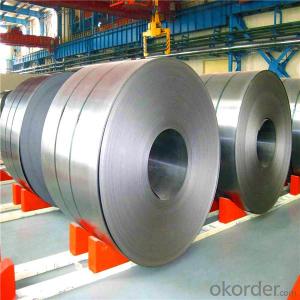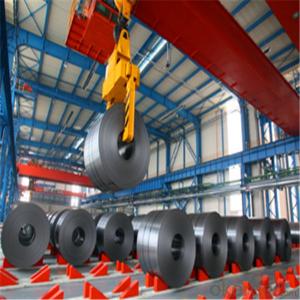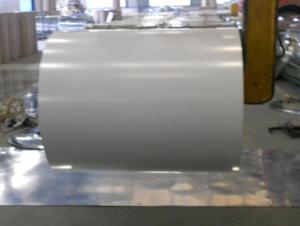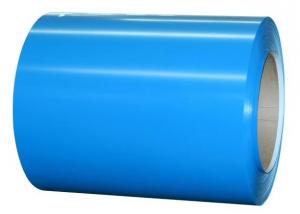Prime Quality Cold Rolled Steel Sheet/Coil Made in China/China Supplier
- Loading Port:
- China main port
- Payment Terms:
- TT OR LC
- Min Order Qty:
- 23 m.t.
- Supply Capability:
- 50000 m.t./month
OKorder Service Pledge
OKorder Financial Service
You Might Also Like
Specification
Prime Quality SPCC Cold Rolled Steel Sheet/coil
Widely used to appliance,automobile industry or other decoration usage.
Certificate: ISO9001
Packing Details: Wrapped by water proof paper and plastic film.Covered with iron sheet,strapped by steel strips to protect the damage under transportation.
Details please check following format
Product Picture
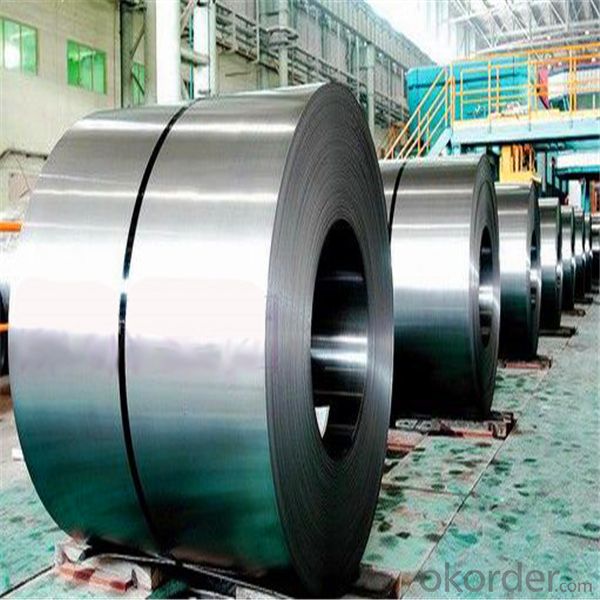
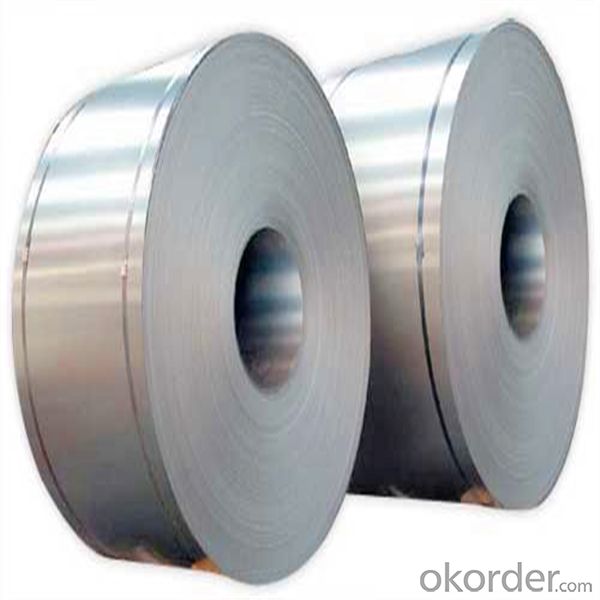
FAQ
1. Q: Where is your company located? How can I visit there?
A: Our company is located in Beijing, China. Welcome to visit us.
2. Q: Can I get sample and how long will it take?
A:Yes. We can supply sample. And you need to pay for courier.
3. Q: What's the MOQ?
A: Our MOQ is 25mt.
4. Q: What's the delivery time?
A: It will take about 30 days after TT or L/C.
5. Q: What is the payment terms?
A: T/T, L/C at sight
6. Q: How does your factory carry out quality control?
A: We attach great importance to quality control.Every part of our products has its own QC.
7. Q: What certificate do you have?
A: We have SGS, ISO9001 etc.
- Q: What are the advantages of using steel products in the automotive industry?
- There are several advantages of using steel products in the automotive industry. Firstly, steel is known for its high strength and durability, making it an ideal material for constructing vehicle bodies and frames. This ensures enhanced safety and protection for passengers in case of accidents or collisions. Secondly, steel has excellent formability, allowing manufacturers to create complex shapes and designs for various automotive components. This flexibility in design helps to optimize the overall performance and efficiency of vehicles. Moreover, steel is readily available and cost-effective compared to alternative materials. This allows automakers to produce vehicles at a more affordable price point, making them accessible to a wider range of consumers. Additionally, steel has good corrosion resistance, which is crucial for automotive applications as vehicles are exposed to harsh environments and weather conditions. This helps to extend the lifespan of vehicles and reduces maintenance costs. Lastly, steel is a highly sustainable material as it is recyclable. This aligns with the automotive industry's increasing focus on sustainability and environmental responsibility. Overall, the advantages of using steel products in the automotive industry include strength, durability, formability, cost-effectiveness, corrosion resistance, and sustainability.
- Q: What are the applications of alloy steel in manufacturing?
- Alloy steel has a wide range of applications in manufacturing due to its exceptional strength, durability, and resistance to corrosion. It is commonly used in the production of various machinery, tools, and equipment such as automotive parts, aircraft components, industrial machinery, and construction materials. Additionally, alloy steel is utilized in the manufacturing of pipelines, oil and gas drilling equipment, and high-pressure vessels. Its versatility and ability to withstand extreme conditions make it a preferred choice in many manufacturing industries.
- Q: How are steel forgings used in the aerospace industry?
- Steel forgings are widely used in the aerospace industry due to their exceptional strength, durability, and resistance to extreme conditions. These forgings are utilized in critical aerospace components such as landing gear, turbine discs, engine mounts, and structural parts. With their ability to withstand high temperatures and pressures, steel forgings ensure the reliability and safety of aircraft, enabling them to perform optimally in demanding environments.
- Q: What are the different types of steel fasteners and their uses?
- There are several types of steel fasteners commonly used in various applications. Some of the most common ones include screws, bolts, nuts, and washers. Screws are threaded fasteners that are designed to be inserted into pre-drilled holes and are commonly used to join two or more materials together. They come in various sizes and types, such as wood screws, machine screws, and self-tapping screws, each tailored for different materials and purposes. Bolts are similar to screws but typically have a larger head and require a nut to secure them. They are commonly used in applications that require high tensile strength and are often used to hold heavy objects together. Nuts are internally threaded fasteners that are paired with bolts to create a strong and secure joint. They come in various shapes and sizes, such as hex nuts, wing nuts, and lock nuts, and are used to fasten materials together by applying torque. Washers are thin, flat discs with a hole in the center. They are placed between the nut or bolt head and the material being fastened to distribute the load and prevent damage to the surface. Washers help to provide a more secure and even fastening. Each type of steel fastener has its own specific uses and applications, and choosing the right one depends on factors such as the materials being joined, the level of strength required, and the environmental conditions the fastener will be exposed to.
- Q: What are the different types of heat treatment processes for steel?
- There are several different types of heat treatment processes for steel, including annealing, normalizing, quenching, tempering, case hardening, and precipitation hardening. Each process has its own specific purpose and effects on the steel's properties.
- Q: What are the common types of steel products used in the pet training and behavior industry?
- Common types of steel products used in the pet training and behavior industry include dog training collars, leashes, and various types of containment systems such as crates, kennels, and fencing.
- Q: What are the applications and uses of steel products in various industries?
- Steel products have a wide range of applications and uses in various industries. In the construction industry, steel is extensively used for building structures, bridges, and infrastructure due to its strength and durability. It is also commonly used in the automotive industry for manufacturing car bodies and structural components. Additionally, steel is essential in the manufacturing of machinery, tools, and equipment across various sectors. Its versatility and ability to be fabricated into different shapes make it ideal for creating pipes, wires, and electrical appliances. Moreover, steel is widely used in the energy sector for power generation and transmission, as well as in the packaging industry for cans, containers, and packaging materials. Overall, the applications of steel products are vast and crucial in numerous industries due to their strength, versatility, and reliability.
- Q: What are the applications of steel in the water treatment industry?
- Steel is widely used in the water treatment industry for various applications. It is commonly utilized for constructing water tanks, pipes, and other infrastructure due to its durability, strength, and resistance to corrosion. Steel tanks can store large volumes of water, while steel pipes ensure efficient transportation of water to treatment plants and distribution networks. Additionally, steel is also used in the construction of water treatment equipment such as sedimentation tanks, clarifiers, and filtration systems. Overall, steel plays a crucial role in the water treatment industry by providing robust and reliable infrastructure necessary for the purification, storage, and distribution of clean water.
- Q: What are the applications of steel mesh in security fencing?
- Steel mesh is commonly used in security fencing due to its high strength and durability. It provides a robust barrier that is difficult to breach, making it ideal for securing residential, commercial, and industrial properties. The small openings in the mesh allow for visibility and airflow, while still preventing unauthorized access. Additionally, steel mesh can be easily customized to fit different spaces and can be combined with other security measures such as barbed wire or electronic systems for enhanced protection.
- Q: What are the different types of steel tanks and their applications in the food processing industry?
- There are several types of steel tanks used in the food processing industry, including stainless steel tanks, carbon steel tanks, and alloy steel tanks. Stainless steel tanks are the most common type, known for their corrosion resistance and hygienic properties. They are widely used for storing and processing various food products such as dairy, beverages, sauces, and oils. Carbon steel tanks, on the other hand, are less expensive but require additional measures to prevent corrosion. They are commonly used for bulk storage of dry food ingredients like grains, flour, and sugar. Alloy steel tanks are a specialized type that offers enhanced strength and durability. They are utilized in food processing applications that involve high-pressure processes or extreme temperature conditions, such as canning or sterilization. Overall, steel tanks play a crucial role in the food processing industry, ensuring proper storage, transportation, and processing of food products while maintaining hygiene and safety standards.
Send your message to us
Prime Quality Cold Rolled Steel Sheet/Coil Made in China/China Supplier
- Loading Port:
- China main port
- Payment Terms:
- TT OR LC
- Min Order Qty:
- 23 m.t.
- Supply Capability:
- 50000 m.t./month
OKorder Service Pledge
OKorder Financial Service
Similar products
Hot products
Hot Searches
Related keywords
